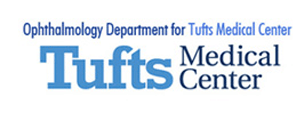Each year, nearly 25,000 Americans visit the emergency room due to a workplace eye injury. During Workplace Eye Wellness Month this March, New England Eye Center reminds employers and workers about the importance of wearing certified and approved eye protection. In addition to wearing safety glasses, look around your office for potential “ocular hazards” such as:
- The position of potted plants and trees that can potentially poke someone in the eye.
- Loose rugs and buckles in carpeting that can cause someone to slip and injure their eye as they fall.
- Scissors, pens, and pencils stored incorrectly in a pencil holder or on a desk.
Potential ocular hazards do not need to be visible to the eye.
Fumes from cleaning agents can be damaging and toxic. Take care around cleaning supplies by educating yourself on the contents of cleaning products. Read the labels. Cleaners like bleach can affect your eyes in both liquid and gas form. The most common cause of bleach in the eyes and lungs is gas created by accidentally mixing a product containing bleach with a product containing ammonia. If you experience symptoms such as a burning sensation or blurred vision get away from the source immediately and wash your eyes with clean, running water for at least 15 minutes. Ensure the water runs away from uncontaminated skin and clothing. If you wear, contact lenses remove them immediately and throw them away. If symptoms continue to go to your local emergency room immediately.
Dr. Wu and the refractive team in Boston want to remind you to protect your eyes outside of work too!
Remember to wear protective eyewear when working in the yard, participating in contact sports inside and outdoors, and even during family activities such as hiking, fishing, skiing, and camping. Most importantly, remember to wear glasses with UV protection. Protect your eyes from the potential hazards of overexposure to the sun.
You can visit the optical shop on the 11th floor at the Eye Center to order protective eyewear, designer sunglasses with UV protection and even contact lenses. When you are ready to take the next step to vision correction without contacts and glasses, consider the Visian ICL, implantable contact lens. While this lens has excellent visual benefits, it is also removable and does not induce dry eye. The lens itself is made of collamer. The biocompatible lens also offers UV protection. Watch for Brian’s Visian ICL journey this year as we blog about his experience! For more information contact the LASIK and Advanced Cataract Center in Boston by calling 1-617-636-1055.




